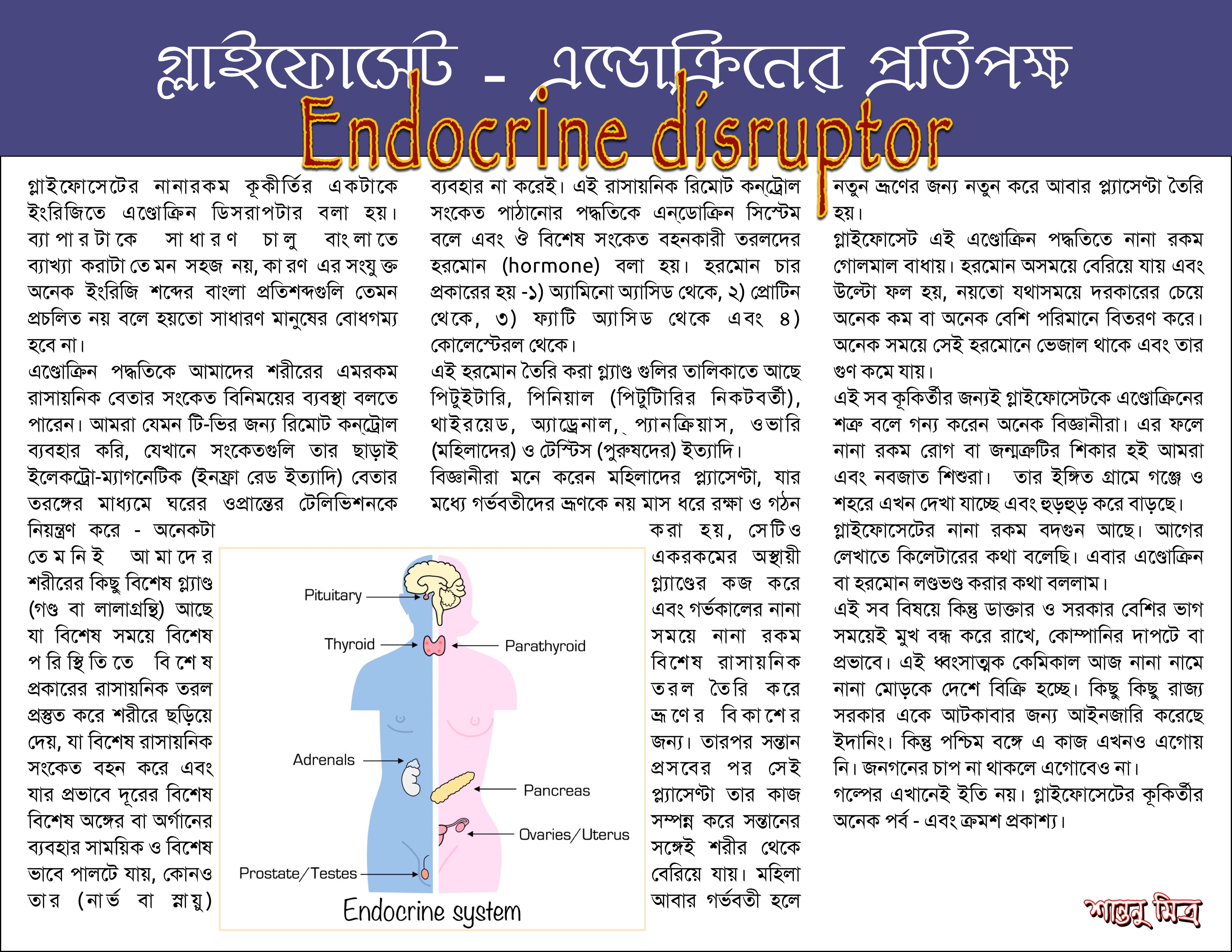This is my second attempt at flyer or hand bill making, covering another aspect of glyphosate – as an endocrine disruptor. This one is not easy to explain in vernacular language. There are no local words for some of the terminology. Also the mechanism of endocrine system is a bit complex. But I have done the best I could.

To my engineer’s logic, endocrine system is a sort of remote control mechanism, not too unlike the TV remote we use to flip channels. Whereas the TV remote often works wirelessly with infra-red light, or some other band of the electromagnetic spectrum, the endocrine system inside our body works wirelessly through chemical signalling. One can think of it as a chemical messaging system, whereby certain glands in our body manages to control distant organs, without the use of “wires” or our nerves.
The glands that are often associated with releasing such chemical signals are pituitary, pineal, thyroid, adrenal, pancreas, ovary (females) and testes (males).
The liquid chemicals that carry such signals are often called hormones. These hormones can be proteins, but not always. There are generally four derivatives, from amino acids, proteins, fatty acids and cholesterol.
Apart from these, there are other glands/organs that too produce chemical substances, sometimes called peptides, which also perform functions in remote parts. In fact, the placenta for pregnant women, which nurture a fetus through gestation is also considered to be a kind of a gland which does release specific chemicals to induce specific growth related steps in the fetus. Unlike the rest, a placenta is for one time use and is discarded after childbirth. When and if the woman gets pregnant again, a new placenta is formed within which the new fetus is nurtured.
The problem with glyphosate is – it throws a spanner into the endocrine works. As a result, one can have hormones released at the wrong time, or in wrong quantity or in defective condition or of inferior quality so they do not perform as intended.
Unfortunately, the medical establishment as well as the state is often tight lipped about it, due to the power and influence of the Pharma and agro industry.
The job of resisting this menace therefore, rests largely on the citizens. Good news is – many provinces in India are now, one by one, legislating restrictions on use of glyphosate. Bad news is, it is not yet happening in West Bengal. Without rising public pressure, it is not going to happen soon. This is where the citizens need to get involved.
The story of glyphosate does not end here. This is to be gradually released.
Thank you.
